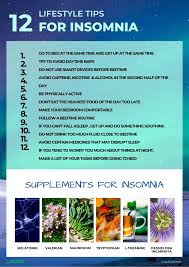ADHD and Insomnia: Understanding the Connection
Attention Deficit Hyperactivity Disorder (ADHD) is a neurodevelopmental disorder that affects both children and adults. One common issue that individuals with ADHD may face is insomnia, a sleep disorder characterized by difficulty falling asleep or staying asleep.
Research has shown a significant link between ADHD and insomnia. Individuals with ADHD are more likely to experience sleep disturbances, such as delayed sleep onset, restless sleep, and frequent awakenings during the night. These sleep problems can exacerbate the symptoms of ADHD, leading to difficulties in concentration, impulsivity, and hyperactivity.
There are several factors that contribute to the relationship between ADHD and insomnia. One key factor is the overstimulation of the brain in individuals with ADHD, making it challenging for them to wind down and relax before bedtime. Additionally, the irregular levels of neurotransmitters like dopamine and norepinephrine in individuals with ADHD can disrupt the sleep-wake cycle.
Managing both ADHD and insomnia requires a comprehensive approach that addresses both conditions simultaneously. Treatment options may include behavioral therapy, medication management, lifestyle modifications, and creating a bedtime routine that promotes relaxation and better sleep hygiene.
If you or a loved one is struggling with both ADHD and insomnia, it is essential to seek professional help from healthcare providers specializing in these areas. By addressing both conditions effectively, individuals can improve their overall quality of life and well-being.
Understanding ADHD and Insomnia: Answers to 6 Common Questions
- Are people with ADHD night owls?
- Why do ADHD people struggle to sleep?
- What is the 10 3 rule for ADHD?
- How many hours of sleep do ADHD people need?
- Is insomnia common with ADHD?
- What is ADHD insomnia like?
Are people with ADHD night owls?
Individuals with ADHD often exhibit tendencies of being night owls, preferring to stay up late into the night and struggling to wake up early in the morning. This nocturnal behavior can be attributed to the unique neurobiological characteristics of ADHD, such as difficulties in regulating sleep patterns and maintaining a consistent sleep routine. The overactive mind and impulsivity associated with ADHD can contribute to a preference for nighttime activities when the external stimuli are reduced, allowing for better focus and productivity. However, this night owl behavior can exacerbate insomnia symptoms in individuals with ADHD, leading to challenges in achieving adequate and restful sleep. It is important for individuals with ADHD to work on establishing healthy sleep habits and routines to improve their overall sleep quality and daytime functioning.
Why do ADHD people struggle to sleep?
Individuals with ADHD often struggle to sleep due to a combination of factors related to their neurodevelopmental disorder. One key reason is the overstimulation of the brain, making it difficult for them to relax and unwind before bedtime. The hyperactivity and impulsivity associated with ADHD can also contribute to a racing mind, preventing individuals from falling asleep easily. Moreover, irregular levels of neurotransmitters like dopamine and norepinephrine in individuals with ADHD can disrupt the natural sleep-wake cycle, leading to difficulties in maintaining a consistent and restful sleep pattern. These factors collectively make it challenging for individuals with ADHD to achieve quality sleep, impacting their overall well-being and daily functioning.
What is the 10 3 rule for ADHD?
The 10-3 rule for ADHD is a commonly recommended strategy to help individuals with Attention Deficit Hyperactivity Disorder manage their sleep patterns effectively. The rule suggests that individuals should aim to go to bed at the same time every night, ideally around 10 PM, and wake up at the same time every morning, around 7 AM. This routine helps establish a consistent sleep schedule, which is crucial for regulating the circadian rhythm and improving overall sleep quality. By following the 10-3 rule, individuals with ADHD may experience better restorative sleep, reduced symptoms of insomnia, and improved daytime functioning.
How many hours of sleep do ADHD people need?
Individuals with ADHD often have varying sleep needs, and there is no one-size-fits-all answer to how many hours of sleep they require. While the recommended amount of sleep for adults is typically 7-9 hours per night, those with ADHD may find that their sleep patterns differ. Some individuals with ADHD may function well on fewer hours of sleep, while others may require more rest to manage their symptoms effectively. It is important for individuals with ADHD to pay attention to their own bodies and cognitive functioning to determine the optimal amount of sleep needed for them to feel refreshed and focused during the day. Consulting with a healthcare provider specializing in ADHD and sleep disorders can also provide personalized guidance on establishing healthy sleep habits tailored to individual needs.
Is insomnia common with ADHD?
Insomnia is indeed a common issue that often coexists with Attention Deficit Hyperactivity Disorder (ADHD). Many individuals with ADHD experience difficulties falling asleep, staying asleep, or having restful sleep. The relationship between ADHD and insomnia is complex, with factors such as overstimulation of the brain, irregular neurotransmitter levels, and challenges in winding down before bedtime contributing to sleep disturbances. Addressing both ADHD and insomnia together through a comprehensive approach that may include therapy, medication management, and lifestyle adjustments can help individuals improve their sleep quality and overall well-being.
What is ADHD insomnia like?
ADHD insomnia is characterized by persistent difficulties with falling asleep, staying asleep, and experiencing restful sleep patterns in individuals with Attention Deficit Hyperactivity Disorder (ADHD). People with ADHD insomnia often struggle to quiet their racing thoughts and find it challenging to relax before bedtime. This can lead to delayed sleep onset, fragmented sleep throughout the night, and overall poor sleep quality. The combination of ADHD symptoms such as hyperactivity and impulsivity, along with the added burden of insomnia, can significantly impact daily functioning, concentration levels, and overall well-being. It is important for individuals experiencing ADHD insomnia to seek professional guidance to address both conditions effectively and improve their sleep habits.

